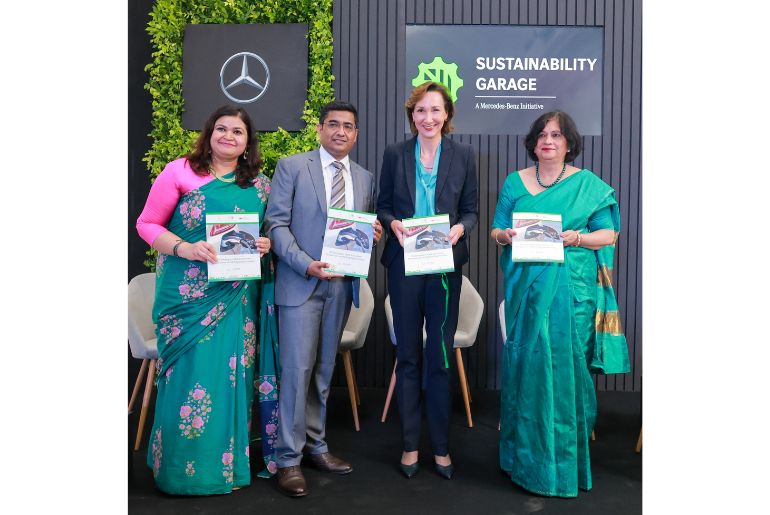Mercedes-Benz Research and Development India (MBRDI) and The Energy and Resources Institute (TERI) have jointly released a first-of-its-kind white paper on skilling for India’s EV charging infrastructure at the Mercedes-Benz Sustainability Dialogue India 2025.
Titled “EV Charging in India: Ecosystem Perspectives and Skilling Opportunities”, the white paper highlights critical gaps in the sector, including lack of hands-on training, absence of standardised training modules, and shortage of qualified trainers for charge point operators (CPOs). These findings emphasise the urgent need to build a skilled workforce to power India’s electric mobility transition.
Drawing insights from consultations with 150 experts across the EV value chain, the report underlines that nearly half of the skill requirements for CPOs lie in the installation and testing of charging infrastructure and IoT-enabled digital applications. Other essential skills include troubleshooting, service quality optimisation, and smart grid integration.
To address these challenges, MBRDI and TERI launched the “Future-In-Charge” skilling initiative under Mercedes-Benz’s Sustainability Garage. The programme, approved by the National Council for Vocational Education and Training (NCVET) and endorsed by the Ministry of Environment, Forest and Climate Change (MoEFCC), blends classroom learning with practical training. It covers electric mobility basics, battery technology, infrastructure operation, installation, and safety practices.
“The Future-In-Charge initiative is not just about bridging skill gaps but tackling systemic barriers to EV infrastructure development. This is a foundational investment in India’s sustainable future,” said Manu Saale, Managing Director & CEO, Mercedes-Benz Research and Development India.
The pilot batch of 60 trainees has commenced training at TERI’s Gwal Pahari campus, with plans to scale the programme nationwide in partnership with academic institutions, charge point operators, and industry stakeholders.
Dr Vibha Dhawan, Director General of TERI, added, “With India accelerating its clean mobility transition, building a skilled workforce in EV charging infrastructure is critical. Future-In-Charge bridges industry needs with youth talent, empowering professionals for green jobs aligned with global standards.”
The whitepaper release coincided with the third edition of the Mercedes-Benz Sustainability Dialogue India, which convened leaders from government, industry, academia, and international organisations to discuss pathways to sustainable growth and climate resilience.

